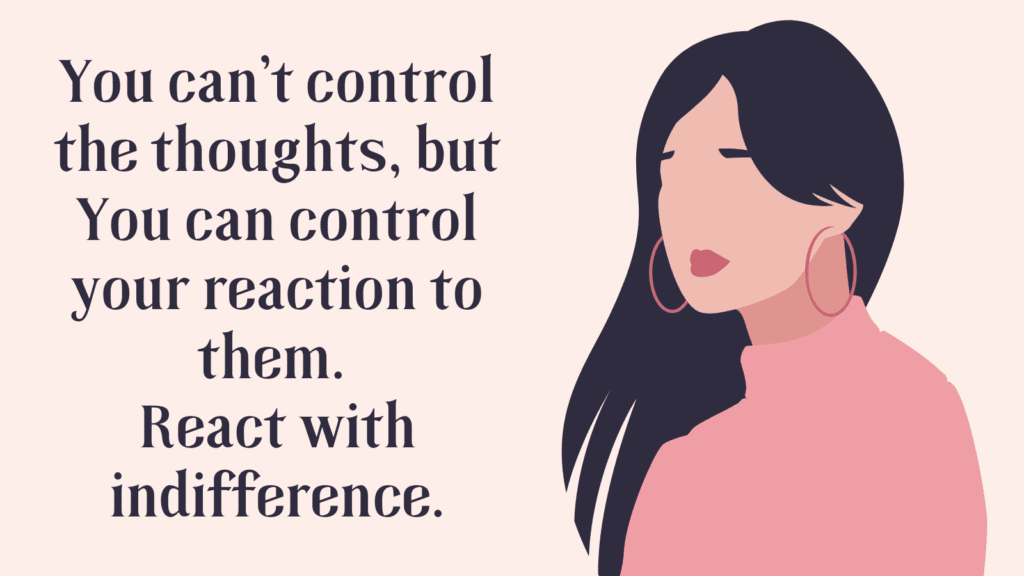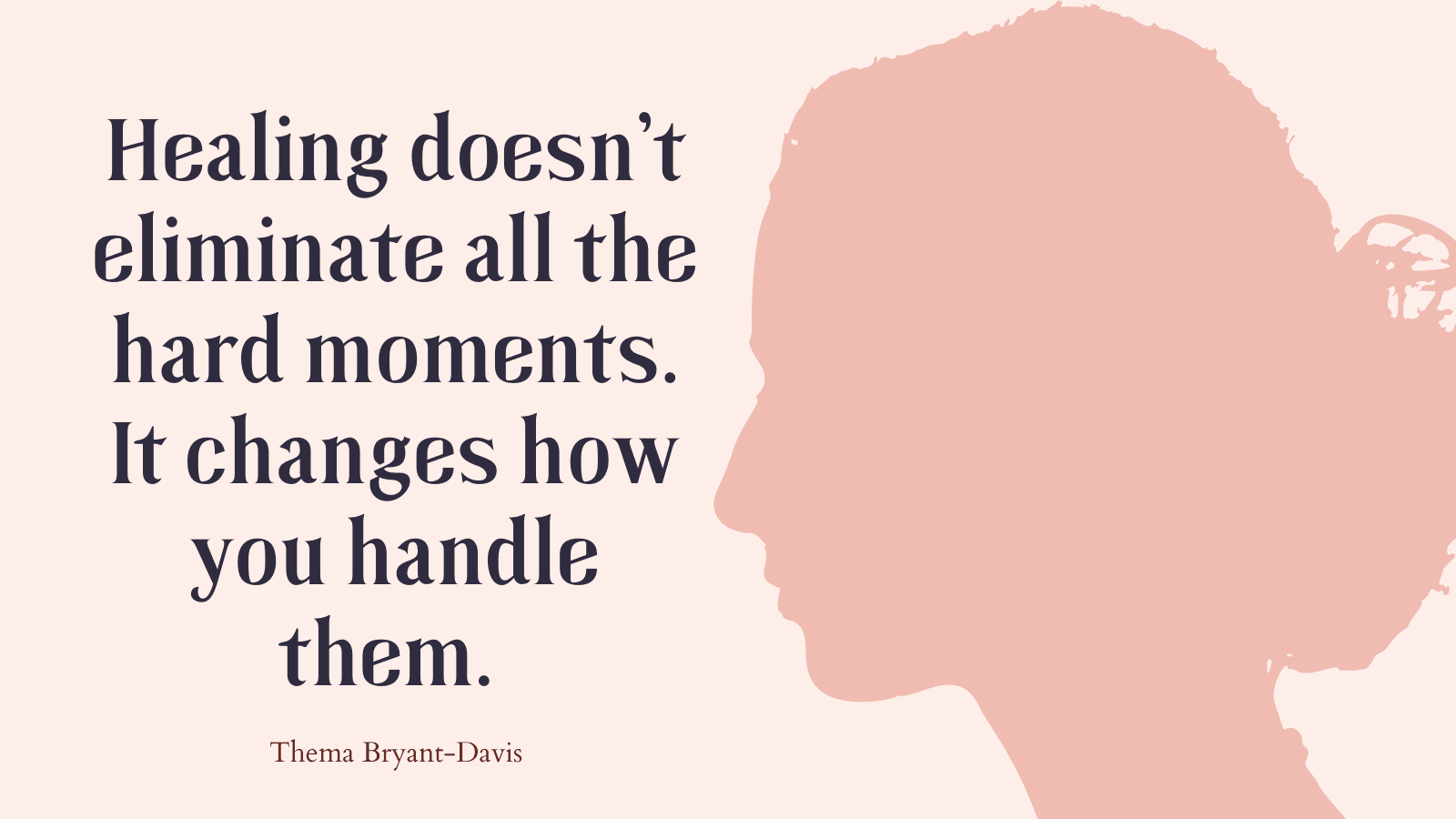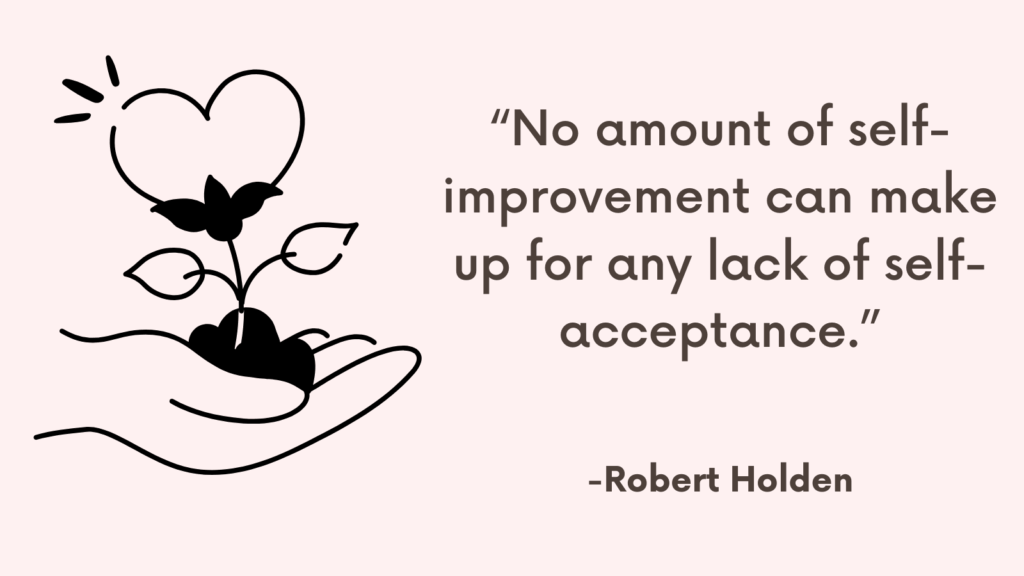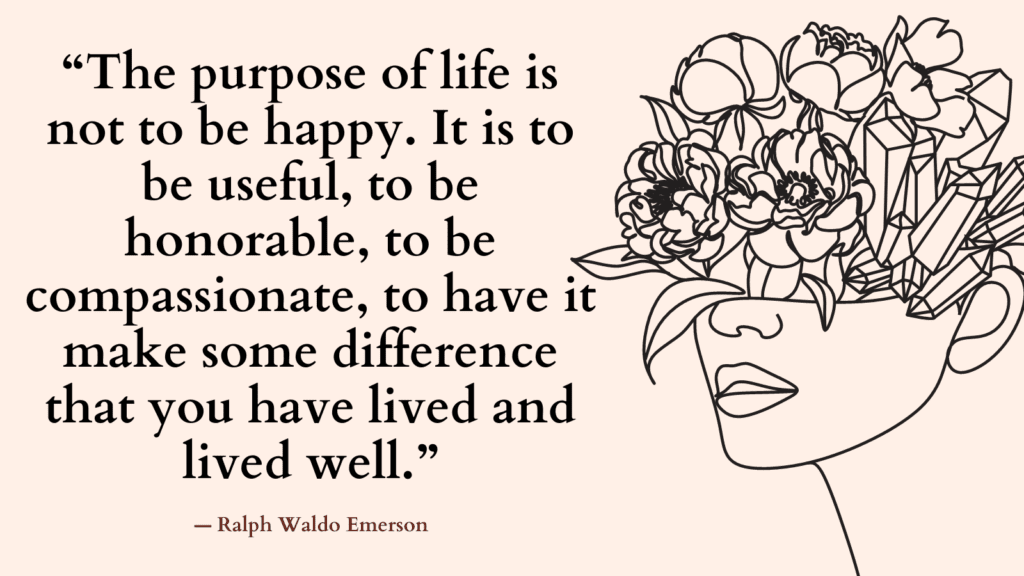Today, you’re going to learn how to practice stoicism using 10 rules from the stoics.
Stoicism is an ancient philosophy that can help you become more resilient by learning how to:
- Recognize what you can and cannot control
- Stay focused on the ‘bigger picture’ so you no longer feel ‘lost’ in life
- Stop being a victim of your past
- Become immune from the critiques of others
- Release fear of death
- Let yourself be happy
What Is Stoicism?
Founded in ancient Athens, Stoicism is a Hellenistic school of philosophic thought that began around 300 BCE with Zeno of Citium.
The main idea behind the ancient philosophy of Stoicism is that shaping your character is ultimately the only thing under your control and thus, it is necessary to be a good person in order to live well.
The following is a list of practices that will help you mold your character over the long term.
Ryan Holiday, author of ‘The Obstacle Is the Way’, summed it up nicely when he said :
“Stoicism as a philosophy is really about the mental game. It is not a set of ethics or principles. It is a collection of spiritual exercises designed to help people through the difficulty of life by managing emotion; specifically, non-helpful emotion. Stoicism doesn’t rescue you so much as train you to manage unproductive emotions and thoughts, beginning by bundling up, or triaging, your concerns.”
It’s important to keep in mind that stoicism doesn’t promise that all the world’s troubles and problems will disappear.
Rather, stoicism helps you learn that it is not worth getting upset over things they cannot control. (*) (*)
Related: 10 Powerful Ways to Build Your Resilience
What Is Happiness According to The Stoics?
Most people set “being happy,” as the ultimate goal in life.
But what does happiness mean?
Many people believe that happiness is a pleasurable emotional state. That happiness is about feeling good and feeling comfortable.
However, stoics argue that this seemingly innocent desire is not only misguided but dangerous and can cause so much suffering.
The Stoics believe that life’s ultimate goal is to reach Eudaimonia, or what we can call “fulfillment.”
Aristotle, the creator of the idea of Eudaimonia, argues that fulfilling a desire may bring momentary pleasure, but may not bring wellness.
What’s the difference between happiness and fulfillment?
The difference between these two emotional states is pain.
While you can feel fulfilled amid stress and physical or mental pain, you can’t be happy when you’re in pain.
In this sense, we can stop chasing happiness and running away from pain and suffering. One can achieve fulfillment by living a virtuous life and doing what is worth doing.
Core Principles Of Stoicism: The Four Cardinal Virtues of Stoicism
The Stoics divided virtue into four main types:
1. Practical wisdom: the ability to understand and differentiate between what’s good and what’s bad.
Wisdom is further divided into discretion, deliberative excellence, good calculation, quick-wittedness, good sense, good sense of purpose, and resourcefulness.
2. Justice: the capacity to do what is right and treat people fairly
Justice is subdivided into piety, good-heartedness, public-spiritedness, honesty, equity, and fair dealing.
3. Courage: (also called fortitude) the state of acting well and thinking correctly despite fear or aversion to externals
Courage is subdivided into endurance, confidence, great-heartedness, stout-heartedness, high-mindedness, cheerfulness, and industriousness (love of work).
4. Temperance: (also called moderation) skill in reducing the desire for external things that aren’t in your complete control
Temperance is further divided into organization, orderliness, modesty, self-control, good discipline, and seemliness.
Related: How to Find Your Purpose and Passion in Life?
How To Practice Stoicism? A Stoic Approach to Living a Meaningful Life
#1. Recognize What You Can And Cannot Control
We feel most in control over our lives when things are going the way we want.
However, uncertainty is a fact of life and oftentimes things don’t go our way.
Stoicism makes the distinction between things that are under our control and things that are not and encourages us to focus on what is under our complete control while regarding everything else as indifferent.
This doesn’t mean that we stop caring about what we cannot control, but rather that we come to realize that we cannot guarantee the outcome of these things.
Practicing this helps us achieve a state of ataraxia, the Greek word meaning serenity.
This principle can be the equivalent of the Serenity Prayer written by theologian Reinhold Niebuhr in 1934 and adopted by a number of twelve-step programs:
God, grant me the serenity to accept the things I cannot change,
Courage to change the things I can,
And wisdom to know the difference.
What is under our control?
According to stoics, these include, “thought, impulse, will to get and will to avoid, and, in a word, everything which is our own doing.”
It’s important to note that just because these things are under your control doesn’t mean that they aren’t influenced by external factors, such as physical needs like hunger. However, you can still make a conscious decision to ignore your cravings.
What about the things that are not under our control?
According to the stoics, these include “the body, property, reputation, office, and, in a word, everything which is not our own doing.”
Despite our best efforts and through no fault of our own, our bodies can get sick, we may lose our property, our reputation may be ruined, and we may lose our job.
This means that to attach your peace of mind to things that are not completely under our control, means that we’re handing over part of your happiness to random chance.
Related: Overcome Suffering In Your Own Way: 4 Keys To Relieve Suffering
#2. Focus On What Is Completely Under Your Control
Misfortunes happen despite our best efforts to prevent them.
However, people can have different reaction reactions to similar misfortunes. While some people shrug them off, others can develop anxiety and remain stuck.
Why do we react in different ways to similar events?
Stoics suggest that much of our suffering comes from a disconnect between our expectations and what actually happens.
Stoics explain that it is senseless to nurture aversion to poverty, illness, or death because, even if we can influence these, we cannot completely control them, which will inevitably make us unhappy.
How can you use this principle?
For example, if you are up for a possible promotion the only thing that’s in your complete control would be your efforts to do your job well. The outcome (getting the promotion) depends on a number of factors, such as possible competition from your coworkers or the relationship you have developed with your employer.
When you focus on getting the promotion, you might be unhappy if you fail and don’t get the promotion. If, on the other hand, you’re focused on doing your job well, then you’ve already succeeded, regardless of the outcome. This will not only help you reduce suffering, but it will also save you time and energy otherwise wasted worrying about the outcome.
#3. Adopt An Outside Perspective On Your Own Troubles
We often find it easier to provide comfort and advice to others, than to ourselves. This is mainly because of how emotionally invested we become in our own troubles.
The stoics suggest viewing our troubles as though they had happened to someone and imagining what advice we would give that person.
Taking a step back takes the emotional sting out of our troubles and helps us see things more clearly.
This helps us utilize balanced judgment and reason even when the event touches us directly to internalize the same insight we would give others and apply it to our own lives.
This can also bring us a sense of comfort as we are reminded that difficult things can happen to anyone, not just to us.
This principle, combined with the previous two, helps us accept that things that are not in our control may not go our way while helping us find the courage to face them. Likewise, we can be grateful when they go our way without becoming too attached to them.
Related: 10 Powerful Techniques To Control Your Negative Thoughts

#4. Consider the Bigger Picture
Similar to the practice of adopting an outside perspective on your own troubles, this practice helps us take a much broader perspective and reduce emotional distress.
According to the stoics, focusing on our (perceived) problems triggers negative emotions – or “passions,” which grab hold of our attention and interfere with our ability to reason.
The stoics suggest putting our troubles into a broader, cosmic perspective by using the “view from above” meditation. This is when you remind yourself that our problems compared with the grand expanse of time and space, will soon be forgotten. A year from now, you probably won’t think your problem is as important as you think it is now.
While this practice won’t make our problem go away, it helps us think more clearly, take more effective action, and suffer less emotionally.
Pin For Later!
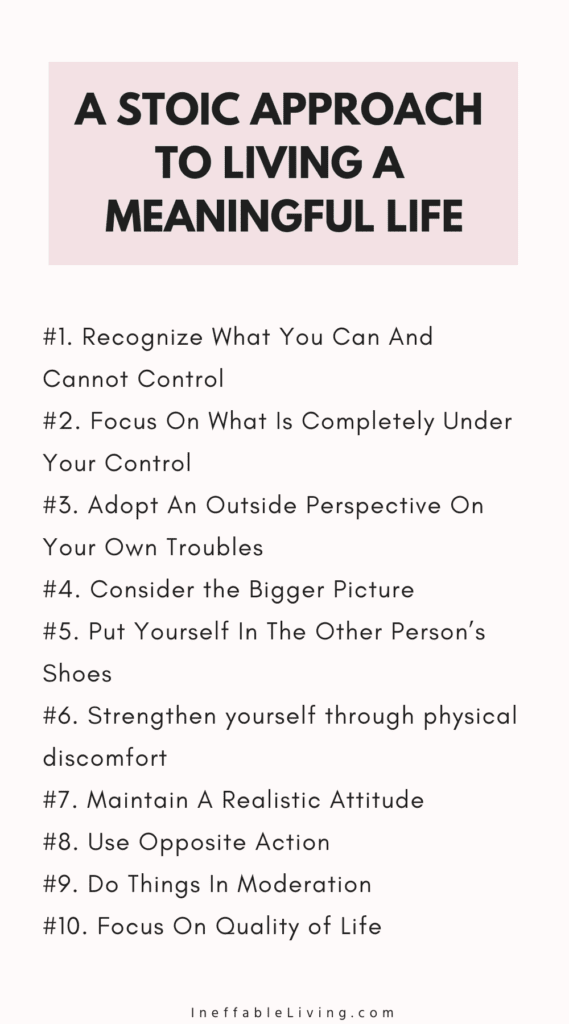
#5. Put Yourself In The Other Person’s Shoes
We tend to feel righteous and justify our feelings when we perceive that others are in the wrong, which often leads to retaliation.
However, despite our righteousness, the other person doesn’t see things our way, they too will see their actions as justified by the circumstances and that our reaction would reflect our bad character.
This tendency to attribute other people’s actions to their character while attributing our own actions to circumstances is called the fundamental attribution error, a term first coined by psychologist Lee Ross.
Stoics suggest here to investigate what led someone to behave toward us the way they did. By imagining ourselves in the other person’s situation – even if we don’t agree with them – our sense of righteous anger diminishes.
The next step is to identify whether they were acting on the basis of a wrong judgment. If so, then we could feel sorry for them. We can also consider the fact, that we, too have made mistakes in the past and would continue to make them. This can motivate us to forgive.
Stoics also suggest that our views of what is good and bad may have changed as we learned from past mistakes. We can then extend compassion toward the other person who hasn’t had the same breakthrough.
It is important to note that stoics are not suggesting that we necessarily agree with the other person or justify their behavior; rather, they suggest broadening our understanding and considering the fact that no one wants to do wrong on purpose. It is then up to us to choose to indulge our anger and sense of righteousness or be open-minded and agree with the other person if they’re right or feel sorry for them if they’re not.
Related: How to Cultivate Compassion and Become an Altruistic Person?
#6. Strengthen yourself through physical discomfort
Physical discomfort, such as tiredness, hunger, sickness, or pain can trigger emotional discomfort and upset.
Stoics suggest practicing tolerating mild, self-imposed discomfort in order to strengthen our character and resolve.
Such discomfort may include abstaining from drinking water, fasting for a day (unless you have a medical condition), sleeping on the floor, skipping the dessert you crave, and so on.
When we get used to the discomfort we become less emotionally triggered when our body is strained by tiredness, hunger, or even pain.
Think about types of physical discomfort that tend to trigger emotional distress for you. Do you tend to get angry when you’re hungry? Tired? Brainstorm a list of physical discomfort that you can practice tolerating that will improve your resilience and work on that.
Before you start practicing, make sure you’re physically capable of handling the discomfort (Check with your doctor if you have a medical condition). Rate the exercise on a scale of 1 to 10, with 1 being super easy and 10 being next to impossible. If the level of difficulty is between 3 and 5, then you can tolerate the exercise while still pushing your boundaries.
#7. Maintain A Realistic Attitude
Stoics use a practice called premeditatiomalorum in Latin, which means premeditation of bad stuff happening.
Stoics are not pessimists. They are realistic. They recognize that things don’t always go our way and that we need to be mentally prepared for that occurrence.
This premeditation could be the equivalent of imaginal exposure therapy – a type of exposure therapy used to help people overcome their anxieties.
By imagining a situation you wouldn’t want to happen as if it’s actually happened, you face your fears and allow yourself the opportunity to learn that you can actually handle the outcome.
This reduces our fear and worries and increases our acceptance in case things didn’t go our way.
The stoics recognize that when the things we’d rather not happen become inevitable, getting upset at that point won’t solve anything and would likely add more suffering.
Stoics refer to this as passion – negative emotions that cloud your mind and stop you from thinking reasonably and taking helpful action.
This principle could be the equivalent of radical acceptance, a dialectical behavior therapy that helps reduce suffering by letting go of fighting reality and accepting that what happened has happened. This doesn’t mean that we like the situation or want it to continue. It simply means that we acknowledge the situation and direct our effort and energy toward doing what’s right given the circumstances.
Stoics suggest that we can either approach the unwanted situation with equanimity and do the best we can given the circumstances, or we can complain and pity ourselves. In either case, the situation will still be the same, but we can spare ourselves so much suffering and take effective actions when we accept reality.
Related: +100 Journal Prompts For Self-Discovery and Self Connection
#8. Use Opposite Action
Opposite action is a dialectical behavioral therapy (DBT) skill that involves doing exactly the opposite of what your emotions tell you to do in a way that changes your emotions.
For example, if you wake up in the morning feeling down, you may feel tempted to stay in bed. However, by acting opposite to what your emotions tell you to do, your mood would probably shift as you get going.
Stoics suggest that giving in to your cravings and mindlessly pursuing one’s desires or avoiding what you don’t like isn’t the best way to live a good life.
Instead, stoics suggest that we should train ourselves to not pursue pleasure and to actively face the things we avoid.
This increases your resilience and reduces your fears.
Related: Regulate Your Emotions: How To Manage and Control Your Difficult Emotions?

#9. Do Things In Moderation
Temperance or moderation, the ability to do things in just measure, is one of the four cardinal Stoic virtues.
There are many opportunities to practice moderation. One of the main opportunities is food. Now more than ever, food has become a source of pleasure rather than just a source of nourishment.
When we pay attention to eating in moderation, we become more mindful in other areas of our lives and start paying attention to other opportunities that can help us strengthen our temperance muscle.
#10. Focus On Quality of Life
Most people focus on living a long life and would obsessively pursue health in an attempt to delay the inevitable.
Stoics were more focused on quality of life over quantity. They also believe that quality of life depended on the quality of thought and character rather than health or social measures of success.
In other words, stoics suggest that we should worry about whether we are living a good life (something we can control) rather than about how long our life will be (something we cannot completely control).
This helps reduce fear and bring more meaning into our lives.

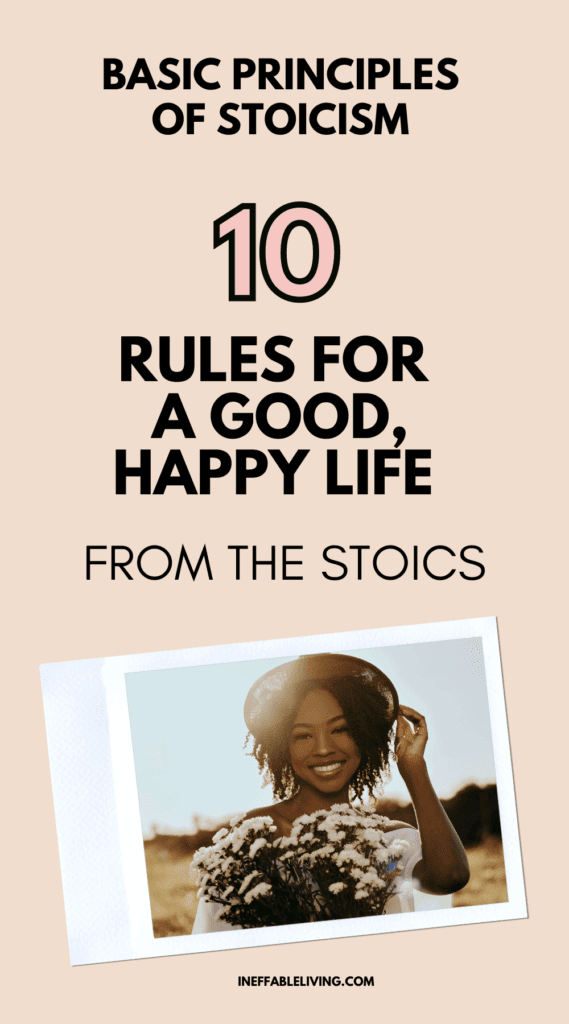
References
- Portions of this article were adapted from the book A Handbook for New Stoics, © 2019 by Gregory Lopez and Massimo Pigliucci. All rights reserved.
- Stoicism – Wikipedia
- Stoicism (Stanford Encyclopedia of Philosophy)
- What Is Stoicism? A Definition & 9 Stoic Exercises To Get You Started (dailystoic.com)
- Stoicism | Definition, History, & Influence | Britannica
- Life Hacks from Marcus Aurelius: How Stoicism Can Help Us – Knowledge at Wharton (upenn.edu)
- Why Stoicism is one of the best mind-hacks ever devised | Aeon Essays
